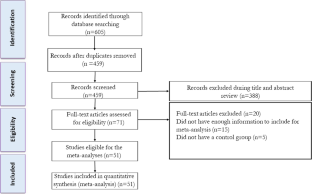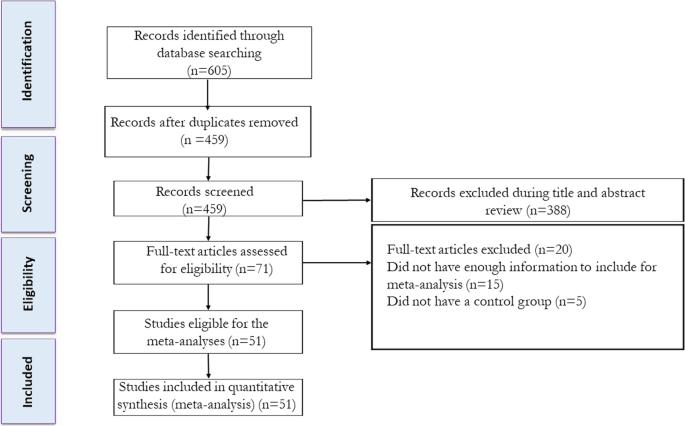Effects of low-carbohydrate diets, with and without caloric restriction, on inflammatory markers in adults: a systematic review and meta-analysis of randomized clinical trials
IF 3.6
3区 医学
Q2 NUTRITION & DIETETICS
引用次数: 0
Abstract
Low-carbohydrate diets (LCDs) have gained interest due to their favorable effects on health outcomes, such as inflammation. However, further research is needed to ascertain the overall effects of LCDs on inflammatory parameters, but at the same time considering weight loss and calorie intake. Thus, a systematic review and meta-analysis of randomized clinical trials was performed to investigate the effects of LCDs compared with low-fat diets (LFDs), with and without caloric restriction, on inflammatory markers in adults. PubMed, Scopus, and Web of Science were searched through March 2022 to select intervention studies addressing LCDs vs. LFDs, in which the following circulating inflammatory markers were used: C-reactive protein (CRP), tumor necrosis factor alpha (TNF-α), and interleukin (IL-6). Analyses were conducted comparing LCDs vs. LFDs through weighted mean differences (WMD) or standardized mean differences (SMD) and 95% confidence intervals (95% CIs) using random effects models. The systematic review and meta-analysis included a total of 51 studies with a total sample of 4,164 adults, with or without other chronic diseases. Intervention durations ranged from 2–144 weeks. LCDs, compared with LFDs, significantly decreased body weight [WMD = −1.35%, p = 0.001], CRP [SMD = −0.1, p = 0.03], and IL-6 [SMD = −0.15, p = 0.09]. However, LCDs did not significantly decrease TNF-α [SMD = −0.02, p = 0.7] compared to LFDs. In conclusion, LCDs have a beneficial effect on markers of inflammation by decreasing CRP and IL-6; this effect has an association with weight loss. However, LCDs were not more effective than LFDs in decreasing TNF-α.


低碳水化合物饮食(无论是否限制热量)对成人炎症指标的影响:随机临床试验的系统回顾和荟萃分析
低碳水化合物饮食(LCD)因其对炎症等健康状况的有利影响而备受关注。然而,要确定低碳水化合物饮食对炎症指标的总体影响,同时考虑到减肥和热量摄入,还需要进一步的研究。因此,我们对随机临床试验进行了系统回顾和荟萃分析,以研究与低脂饮食(LFD)相比,在限制或不限制热量的情况下,LCD 对成人炎症指标的影响。我们检索了截止到 2022 年 3 月的 PubMed、Scopus 和 Web of Science,选择了针对 LCD 与 LFD 的干预研究,其中使用了以下循环炎症指标:C反应蛋白(CRP)、肿瘤坏死因子α(TNF-α)和白细胞介素(IL-6)。采用随机效应模型,通过加权平均差(WMD)或标准化平均差(SMD)和 95% 置信区间(95% CI)对 LCD 与 LFD 进行了比较分析。系统综述和荟萃分析共纳入了 51 项研究,总样本数为 4,164 名成年人,无论是否患有其他慢性疾病。干预持续时间为 2-144 周不等。LCD与LFD相比,能显著降低体重[WMD = -1.35%, p = 0.001]、CRP[SMD = -0.1, p = 0.03]和IL-6[SMD = -0.15, p = 0.09]。然而,与低脂低糖相比,LCD 并未明显降低 TNF-α [SMD = -0.02,p = 0.7]。总之,LCD 通过降低 CRP 和 IL-6 对炎症指标产生有益影响;这种影响与体重减轻有关。然而,LCD 在降低 TNF-α 方面并不比 LFD 更有效。
本文章由计算机程序翻译,如有差异,请以英文原文为准。
求助全文
约1分钟内获得全文
求助全文
来源期刊
CiteScore
10.60
自引率
2.10%
发文量
189
审稿时长
3-6 weeks
期刊介绍:
The European Journal of Clinical Nutrition (EJCN) is an international, peer-reviewed journal covering all aspects of human and clinical nutrition. The journal welcomes original research, reviews, case reports and brief communications based on clinical, metabolic and epidemiological studies that describe methodologies, mechanisms, associations and benefits of nutritional interventions for clinical disease and health promotion.
Topics of interest include but are not limited to:
Nutrition and Health (including climate and ecological aspects)
Metabolism & Metabolomics
Genomics and personalized strategies in nutrition
Nutrition during the early life cycle
Health issues and nutrition in the elderly
Phenotyping in clinical nutrition
Nutrition in acute and chronic diseases
The double burden of ''malnutrition'': Under-nutrition and Obesity
Prevention of Non Communicable Diseases (NCD)

 求助内容:
求助内容: 应助结果提醒方式:
应助结果提醒方式:


